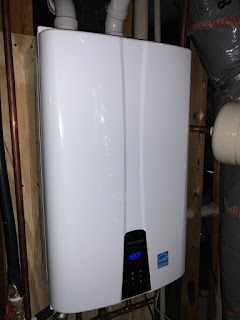ESXi 4.1 Kickstart Script for EDA Virtual Appliance
Summary:
This one has been on the back burner for a little while, but I finally got it put together thanks to resources like virtualghetto. lamw is crazy smartz!
Script:
Everything seems to work fine, the only one I’m not sure of is the enabling the CIMoemProviderEnabled Advanced setting as to whether that works or not. Let me know if you happen to brave my custom kickstart script made for Dell servers, but can be adjusted for pretty much any setup I think.
This one has been on the back burner for a little while, but I finally got it put together thanks to resources like virtualghetto. lamw is crazy smartz!
Script:
Everything seems to work fine, the only one I’m not sure of is the enabling the CIMoemProviderEnabled Advanced setting as to whether that works or not. Let me know if you happen to brave my custom kickstart script made for Dell servers, but can be adjusted for pretty much any setup I think.
1: # Bind vmnic4 to vSwitch0. EDA adds vmnic0 automatically
2: # Active/Passive
3: esxcfg-vswitch -L vmnic4 vSwitch0
4: esxcfg-vswitch -X 1 vSwitch0
5:
6: # Add vSwitch1, VMkernel, and bind vmnic1/3
7: # Active/Passive
8: # The following configures vSwitch1 as the vmKernel vmotion switch
9: esxcfg-vswitch -a vSwitch1
10: esxcfg-vswitch -A VMkernel vSwitch1
11: esxcfg-vswitch -L vmnic1 vSwitch1
12: esxcfg-vswitch -L vmnic3 vSwitch1
13: esxcfg-vswitch -X 1 vSwitch1
14:
15: # Add vSwitch2 and bind vmnic2/5
16: # Active/Passive
17: # Created VM Switch
18: esxcfg-vswitch -a vSwitch2
19: esxcfg-vswitch -L vmnic2 vSwitch2
20: esxcfg-vswitch -L vmnic5 vSwitch2
21: esxcfg-vswitch -X 1 vSwitch2
22:
23: # NTP Configuration
24: /bin/echo "restrict 127.0.0.1" > /etc/ntp.conf
25: /bin/echo "restrict default kod nomodify notrap" >> /etc/ntp.conf
26: /bin/echo "server timeserver1.local" >> /etc/ntp.conf
27: /bin/echo "server timeserver2.local" >> /etc/ntp.conf
28: /etc/init.d/ntpd restart
29:
30: # Configures vmk0 as Mgmt Interface
31: HOSTSVC_FILE=/etc/vmware/hostd/hostsvc.xml
32:
33: /bin/cat > ${HOSTSVC_FILE} << __CREATE_HOST_SVC__
34: <ConfigRoot>
35: <mangementVnics>
36: <nic id="0000">vmk0</nic>
37: </mangementVnics>
38: <mode>normal</mode>
39: <service>
40: <tsm-ssh>off</tsm-ssh>
41: </service>
42: </ConfigRoot>
43: __CREATE_HOST_SVC__
44:
45: # Configure vmk1 as vMotion Interface
46: esxcfg-vmknic -a VMkernel -i ###HOSTIP### -n 255.255.255.0
47: /bin/vim-cmd hostsvc/net/refresh
48: /bin/vim-cmd hostsvc/vmotion/vnic_set vmk1
49:
50: # DNS Secondary (replace x.x.x.x w/ IP of another DNS server)
51: /bin/echo "nameserver x.x.x.x" >> /etc/resolv.conf
52:
53: # Configure Local Datastore Name to standard
54: /bin/vim-cmd hostsvc/datastore/rename datastore1 "$(hostname -s)_local"
55:
56: # Configure Syslog to forward to remote syslog server like Splunk
57: /bin/vim-cmd hostsvc/advopt/update Syslog.Remote.Hostname string x.x.x.x
58:
59: # Configure port to forward Syslogs.
60: /bin/vim-cmd hostsvc/advopt/update Syslog.Remote.Port int 514
61:
62: # Only needed if local syslog going to be used.
63: #/bin/vim-cmd hostsvc/advopt/update Syslog.Local.DatastorePath string "[$(hostname -s)_local] /logfiles/hostName.log"
64:
65: # Maps standard NFS Shares (I use these as shared stores for iso and vmtemplates)
66: esxcfg-nas -a -o linuxserver1 -s /share/STUFF nfs_share
67: esxcfg-nas -a -o nasdevice1 -s esx_vmtemplates nfs_share_vmtemplates
68:
69: #### Start of Join AD code ####
70: #Joins to Active Directory (ESX 4.1) Update 1 Code Hashed Out
71: /bin/cat > /tmp/joinActiveDirectory.py << __JOIN_AD__
72: import sys,re,os,urllib,urllib2,base64
73:
74: # mob url
75: url = "https://localhost/mob/?moid=ha-ad-auth&method=joinDomain"
76:
77: # mob login credentials -- use password = "" for build scripting
78: username = "root"
79: password = ""
80:
81: # which domain to join, and associated OU
82: # e.g.
83: # "local.com"
84: # "local.com/VMware Server OU"
85: domainname = "local.com/someOU/"
86:
87: # active directory credentials using encoded base64 password
88: ad_username = "someserviceaccount@local.com"
89: ### To get an encoded password, use python. It's not really secure, but better than plain text.
90: encodedpassword = ""
91: ad_password = base64.b64decode(encodedpassword)
92:
93: # Unhash for ESXi 4.1 Update 1
94: ### Create global variables
95: # global passman,authhandler,opener,req,page,page_content,nonce,headers,cookie,params,e_params
96:
97: # Code to build opener with HTTP Basic Authentication
98: passman = urllib2.HTTPPasswordMgrWithDefaultRealm()
99: passman.add_password(None,url,username,password)
100: authhandler = urllib2.HTTPBasicAuthHandler(passman)
101: opener = urllib2.build_opener(authhandler)
102: urllib2.install_opener(opener)
103:
104: # Unhash below for 4.1 Update 1
105: ### Code to capture required page data and cookie required for post back to meet CSRF requirements ###
106: #req = urllib2.Request(url)
107: #page = urllib2.urlopen(req)
108: #page_content= page.read()
109:
110: # Unhash below for 4.1 Update 1
111: ### regex to get the vmware-session-nonce value from the hidden form entry
112: # reg = re.compile('name="vmware-session-nonce" type="hidden" value="?([^\s^"]+)"')
113: #nonce = reg.search(page_content).group(1)
114:
115: # Unhash below for 4.1 Update 1
116: ### Code to join the domain ESXi 4.1U1
117: #params = {'vmware-session-nonce':nonce,'domainName':domainname,'userName':ad_username,'password':ad_password}
118: #e_params = urllib.urlencode(params)
119: #req = urllib2.Request(url, e_params, headers={"Cookie":cookie})
120: #page = urllib2.urlopen(req).read()
121:
122: #Hash if using 4.1 U1
123: ### Code to join domain ESX 4.1
124: params = {'domainName':domainname,'userName':ad_username,'password':ad_password}
125: e_params = urllib.urlencode(params)
126: req = urllib2.Request(url,e_params)
127: page = urllib2.urlopen(req).read()
128:
129: __JOIN_AD__
130:
131: #execute python script to Join AD
132: /bin/python /tmp/joinActiveDirectory.py
133:
134: #### End AD Join Code ####
135: # Changes UserVars.CIMoemProviderEnabled to 1. Required for OMSA VIB to work properly.
136: esxcfg-advcfg -s 1 /UserVars/CIMoemProviderEnabled
137: %firstboot --unsupported --interpreter=busybox --level=9999
138: # Do Patching in this section
139:
140: #Gets Emulex and OMSA VIB from IIS Server w/ virtual directory pointed to NAS hosted directory
141: #Applies Emulex then OMSA VIB <-- Must be in this order.
142: # Maintenance Mode attempted twice before attempting patch because it sometimes fails.
143: /bin/vim-cmd hostsvc/maintenance_mode_enter
144: sleep 5
145: /bin/vim-cmd hostsvc/maintenance_mode_enter
146:
147: # Entries entered twice due to metadata.zip possibly not extracting properly the first time.
148: /sbin/esxupdate --bundle=http://IISSERVER.local.com/VIBS/Emulex_CIM/elx-esx-4.1.0-emulex-cim-provider-3.2.30.1-offline_bundle-364582.zip update
149:
150: /sbin/esxupdate --bundle=http://IISSERVER.local.com/VIBS/Emulex_CIM/elx-esx-4.1.0-emulex-cim-provider-3.2.30.1-offline_bundle-364582.zip update
151:
152: /sbin/esxupdate --bundle=http://IISSERVER.local.com/VIBS/Dell_OMSA/OM-SrvAdmin-Dell-Web-6.5.0-2247.VIB-ESX41i_A01.zip update
153:
154: /sbin/esxupdate --bundle=http://IISSERVER.local.com/VIBS/Dell_OMSA/OM-SrvAdmin-Dell-Web-6.5.0-2247.VIB-ESX41i_A01.zip update
155:
157:
158: /bin/vim-cmd hostsvc/maintenance_mode_exit
159:
160: /sbin/reboot -d 120



Comments